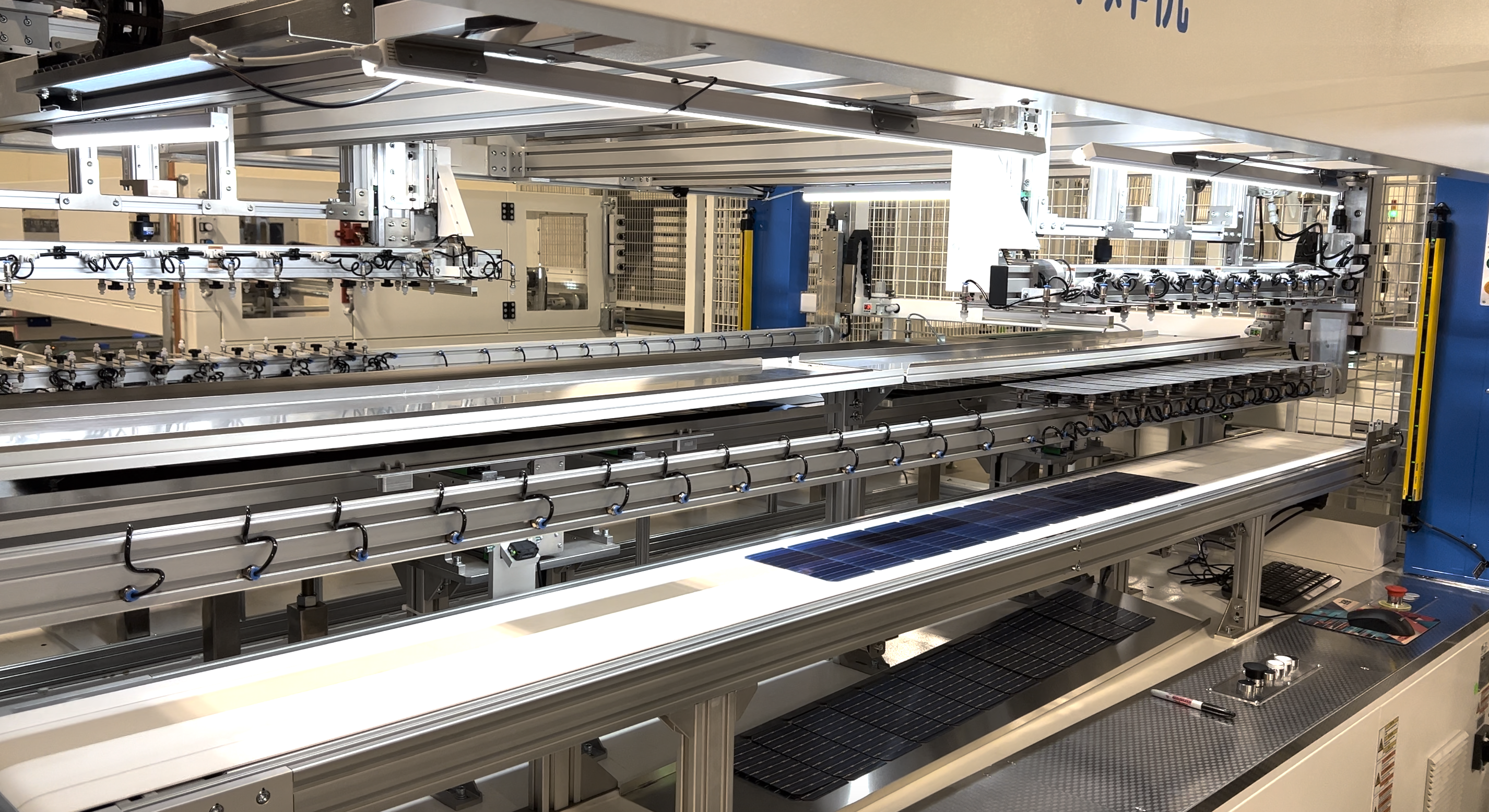Yemen Strikes Back: 15 US Arms Manufacturers Face Unprecedented Sanctions Hammer
Manufacturing
2025-04-20 22:11:10
In a bold diplomatic move, Yemen has imposed sanctions on 15 prominent U.S. weapons manufacturing companies, directly targeting firms that have been supplying arms to Israel during its ongoing military operations in Gaza. The government's decisive action comes as a strong condemnation of what it describes as complicity in potential humanitarian violations. The sanctions represent Yemen's stance against the military support that enables what the Yemeni government characterizes as genocidal actions against Palestinian civilians. By specifically targeting weapons manufacturers, Yemen is sending a clear message about its opposition to the conflict and its commitment to holding international actors accountable. These sanctions highlight the growing international criticism of Israel's military campaign in Gaza and underscore the diplomatic tensions surrounding the ongoing conflict. The move by Yemen demonstrates the broader global response to the humanitarian crisis unfolding in the region, signaling solidarity with Palestinian civilians and challenging the military industrial complex that supports prolonged military interventions. While the practical immediate impact of these sanctions remains to be seen, they symbolize a significant diplomatic statement from Yemen, drawing international attention to the complex geopolitical dynamics of the Israel-Gaza conflict. MORE...
Manufacturing Mirage: How Trump's Tariff Gamble Fails to Revive America's Industrial Dream
Manufacturing
2025-04-20 17:00:38
In a bold yet controversial economic maneuver, President Trump has dramatically reshaped the nation's thriving economic landscape through aggressive tariff increases, ostensibly aimed at revitalizing American manufacturing. Renowned global affairs expert Fareed Zakaria draws a striking parallel to a pivotal moment in economic history: the infamous Smoot-Hawley tariffs of 1930, which were designed to prop up a struggling agricultural sector. These sweeping trade policies represent more than just economic strategy—they embody a nostalgic vision of American industrial might, yearning to resurrect bygone economic paradigms. However, Zakaria argues that such backward-looking approaches are fundamentally misguided, potentially causing more economic harm than good for everyday Americans. By imposing substantial tariffs, the administration seems intent on turning back the clock, attempting to shield domestic industries through protectionist measures. Yet, history suggests that such strategies often backfire, creating unintended consequences that can undermine the very economic sectors they aim to protect. The echoes of past economic missteps are unmistakable. Just as the Smoot-Hawley tariffs ultimately contributed to deepening the Great Depression, today's tariff policies risk disrupting the delicate balance of global trade and potentially stifling the innovative spirit that has long defined American economic dynamism. MORE...
Revolutionary Robot Tech: The Game-Changing Discovery That Could Transform Manufacturing Forever
Manufacturing
2025-04-20 14:30:00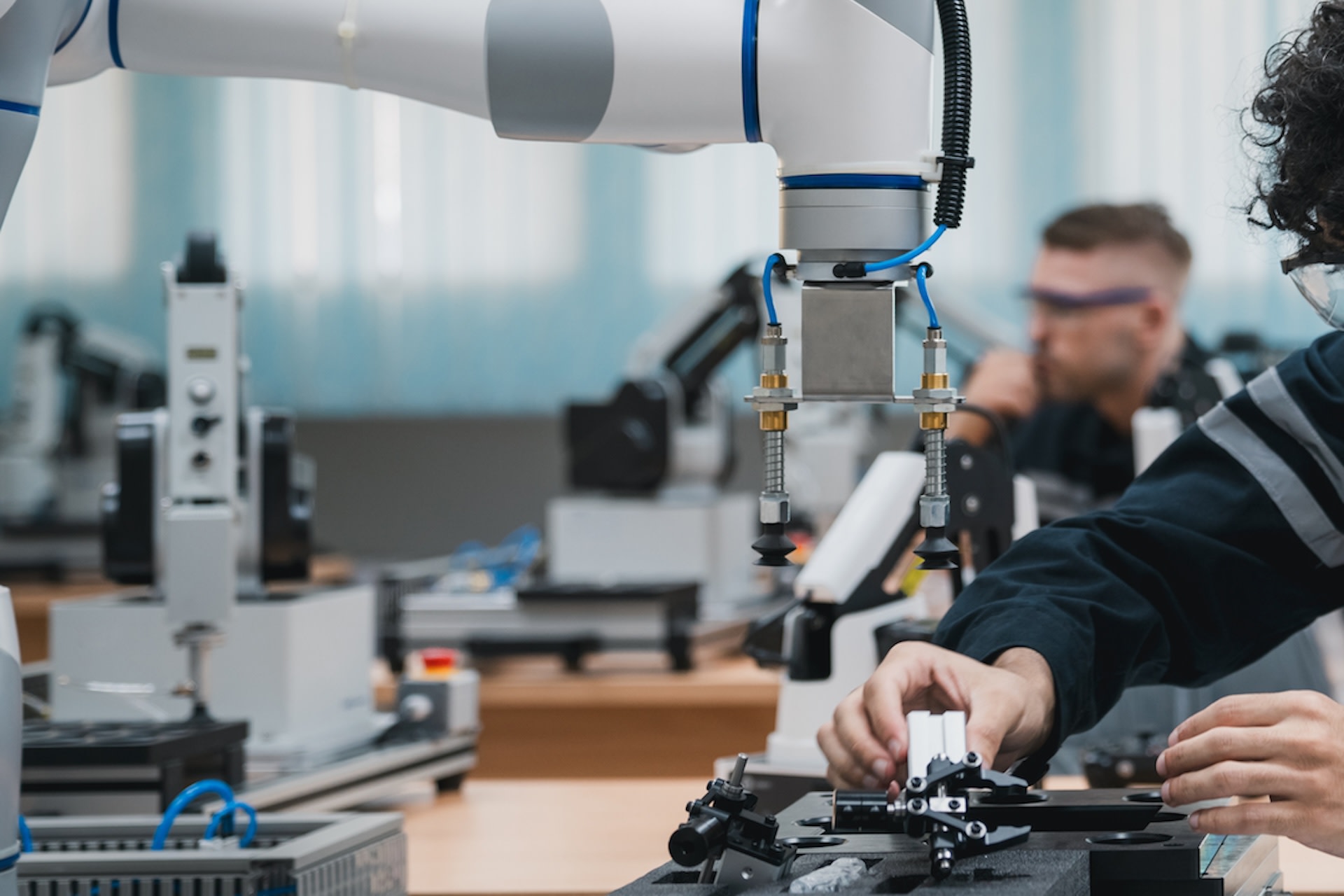
In a groundbreaking innovation, researchers have unveiled a cutting-edge robotic gripping system that promises to revolutionize workplace environments. This advanced technology tackles two critical challenges simultaneously: dramatically reducing noise pollution and enhancing energy efficiency. The novel robotic grip mechanism represents a significant leap forward in industrial automation, offering a sophisticated solution that addresses both environmental and operational concerns. By minimizing sound levels and optimizing energy consumption, the system demonstrates remarkable potential for transforming manufacturing and industrial settings. Engineers and scientists collaborated to design a solution that not only improves workplace acoustics but also contributes to sustainable technological development. The system's intelligent design allows for smoother, quieter operations while consuming less electrical power compared to traditional robotic gripping technologies. This breakthrough highlights the ongoing commitment of research teams to create smarter, more environmentally conscious technological solutions that can enhance workplace productivity and reduce ecological impact. As industries continue to seek innovative approaches to operational challenges, this robotic gripping system stands as a promising example of intelligent engineering. MORE...
Manufacturing Mirage: Why Trump's Tariff Strategy Falls Short of Job Revival
Manufacturing
2025-04-20 14:26:03
Trump's Tariff Policies Challenged: California Leads Legal Assault
The controversial trade policies implemented during the Trump administration are now facing a significant legal challenge, with California—a powerhouse of manufacturing and innovation—spearheading a series of lawsuits challenging the sweeping tariffs.
As the legal battles intensify, experts are closely watching the potential economic implications. Jared Bernstein, former Chair of the Council of Economic Advisers, recently joined a prominent news program to provide insights into the complex legal and economic landscape surrounding these trade disputes.
The lawsuits represent a critical moment for trade policy, highlighting the tensions between federal trade regulations and state-level economic interests. California's involvement signals a robust pushback against what many view as protectionist measures that could harm domestic industries and international trade relationships.
With high stakes for businesses, consumers, and the broader economic ecosystem, these legal challenges could potentially reshape trade policy and set important precedents for future international economic negotiations.
MORE...The Tariff Trap: Why Manufacturing Dreams Are Crumbling, Not Rising
Manufacturing
2025-04-20 14:03:06
Trump's Tariff Tango: A Dangerous Dance That Hurts Everyone In the high-stakes world of international trade, President Donald Trump's aggressive tariff strategy is proving to be a lose-lose proposition that threatens global economic prosperity. What began as a bold attempt to protect American industries has morphed into a complex economic chess game with far-reaching consequences that extend well beyond national borders. The president's protectionist approach, while seemingly patriotic on the surface, is fundamentally undermining the very economic strength he claims to champion. By imposing sweeping tariffs on international goods, Trump is not just challenging trading partners—he's creating a domino effect of economic disruption that ultimately damages American consumers and businesses. Economists across the spectrum warn that these tariffs are essentially a hidden tax that gets passed directly to American families. When import costs rise, companies don't absorb these expenses—they transfer them to consumers through higher prices on everything from electronics to automobiles. The irony is palpable: a policy intended to protect American workers is actually making their daily lives more expensive. Moreover, retaliatory measures from trading partners like China and the European Union have created a dangerous cycle of economic escalation. Each punitive tariff triggers a corresponding response, shrinking global trade and creating uncertainty in international markets. Small and medium-sized businesses suffer the most, caught in the crossfire of this trade war. The global economic ecosystem is intrinsically interconnected. By disrupting these delicate relationships, Trump's tariff strategy risks not just economic inefficiency, but potential long-term structural damage to international trade networks that have taken decades to build. As the world watches, one thing becomes increasingly clear: protectionism is not protection. It's a misguided approach that promises strength but delivers vulnerability, threatening the very economic foundations it claims to defend. MORE...
Chip Giant TSM Navigates AI Boom Amid Global Trade Tensions
Manufacturing
2025-04-20 13:18:43
Diving Deep into Taiwan Semiconductor's AI Stock Performance Following our recent exploration of the Top 10 AI Stocks making waves this week, we're turning our analytical lens to a standout player: Taiwan Semiconductor Manufacturing Company Limited (NYSE:TSM). As the semiconductor industry continues to be a critical backbone of artificial intelligence innovation, TSM emerges as a fascinating case study. Morgan Stanley's latest insights have shed light on an intriguing aspect of the tech landscape - the growing electricity demand driven by AI technologies. This development positions semiconductor manufacturers like TSM at the forefront of a transformative technological revolution. Our in-depth analysis aims to unpack TSM's current standing among the most prominent AI stocks, examining its strategic positioning, market performance, and potential for future growth. Investors and tech enthusiasts alike will find this breakdown both informative and compelling. Stay tuned as we dissect the nuances of Taiwan Semiconductor's role in the rapidly evolving AI ecosystem, offering a comprehensive view of its market potential and technological significance. MORE...
Gensol's EV Plant Scandal: Investors Duped by False Manufacturing Claims, SEBI Reveals
Manufacturing
2025-04-20 12:11:42
In a significant regulatory action, the Securities and Exchange Board of India (Sebi) has imposed a stringent market access ban on Gensol and its promoters, the Jaggi brothers. The regulatory body has effectively barred the company and its key stakeholders from participating in the securities market until further notice, signaling a serious stance against potential market irregularities. The comprehensive prohibition means that Gensol and the Jaggi brothers are temporarily restricted from conducting any securities-related transactions, raising investments, or engaging in capital market activities. This decisive move by Sebi underscores the regulatory watchdog's commitment to maintaining market integrity and protecting investor interests. While the specific details of the violations leading to this market access ban remain undisclosed, the sweeping nature of the restriction suggests a thorough investigation into the company's market practices. Investors and market participants are advised to stay informed about potential developments in this case. The ban serves as a stark reminder of the regulatory oversight in India's financial markets and the potential consequences of non-compliance with securities regulations. MORE...
Chip Giant TSMC Completes Groundbreaking Second Fabrication Facility, Signaling Tech Manufacturing Leap
Manufacturing
2025-04-20 12:00:12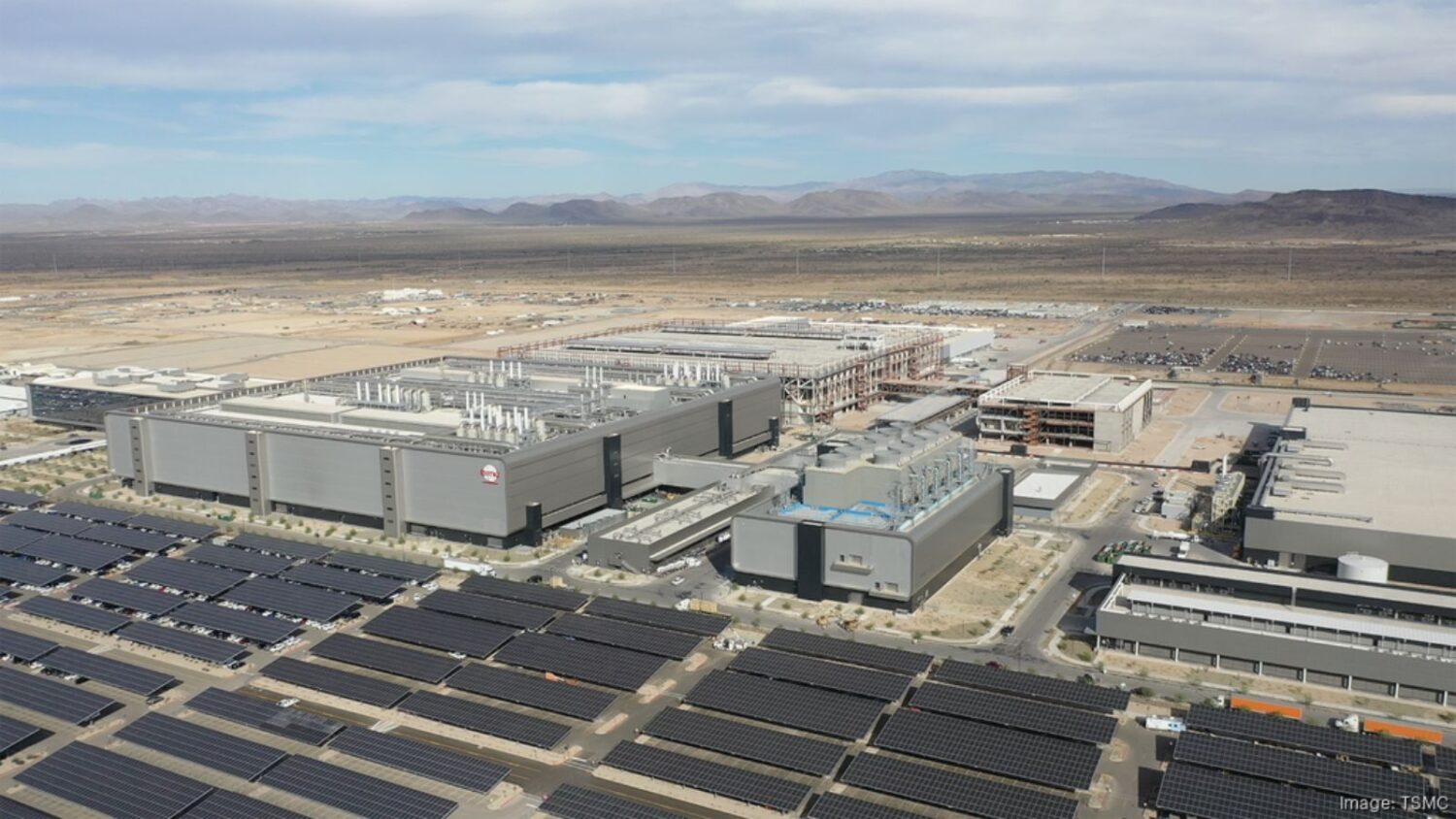
Taiwan Semiconductor Manufacturing Co. (TSMC) has achieved a significant milestone by completing construction of its second semiconductor fabrication facility in north Phoenix ahead of schedule. This rapid progress underscores the company's commitment to expanding its advanced chip manufacturing capabilities in the United States and meeting growing global demand for cutting-edge semiconductor technology. The new fab represents a major investment in American semiconductor infrastructure, positioning TSMC as a key player in strengthening domestic chip production. By completing the project ahead of anticipated timelines, the company demonstrates its engineering prowess and operational efficiency in scaling up high-tech manufacturing facilities. Located in the thriving tech corridor of Arizona, this second fab will further enhance TSMC's ability to serve critical industries, including telecommunications, computing, and advanced electronics. The facility is expected to play a crucial role in addressing semiconductor supply chain challenges and reducing global dependence on overseas chip manufacturing. MORE...
Underwater Tech Giants Join Forces: Vatn Systems and Palantir Revolutionize Autonomous Underwater Vehicle Production
Manufacturing
2025-04-20 11:46:11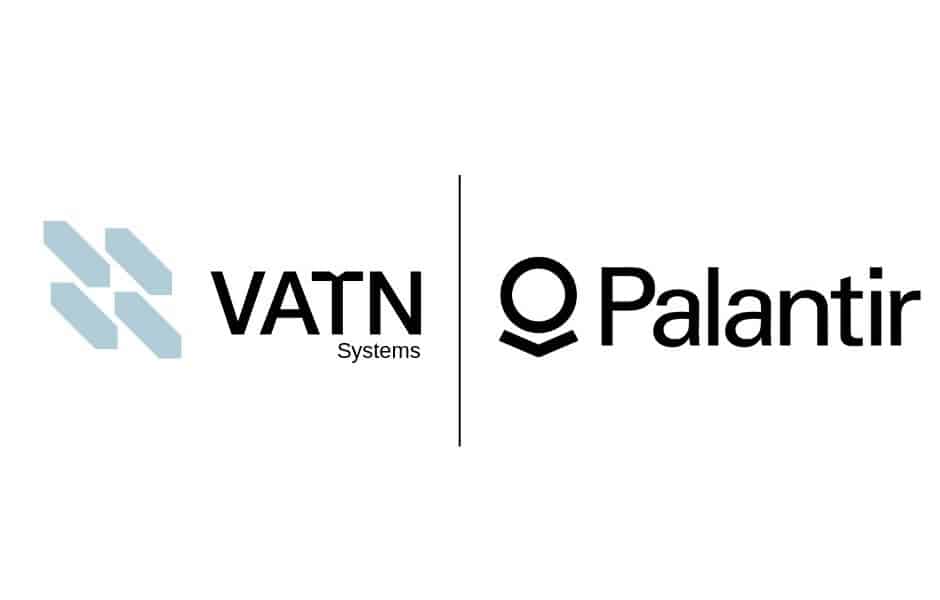
In a strategic move to advance underwater defense technology, Vatn Systems and Palantir Technologies have announced a groundbreaking partnership aimed at revolutionizing the production of autonomous underwater vehicles (AUVs) for national security applications. The collaboration brings together Vatn Systems' expertise in marine engineering and Palantir's cutting-edge data integration and analysis capabilities. Their joint effort is set to dramatically accelerate the manufacturing process of sophisticated underwater autonomous systems, potentially transforming maritime defense strategies. By combining Vatn Systems' innovative underwater vehicle design with Palantir's advanced data platforms, the partnership promises to deliver more intelligent, responsive, and scalable autonomous underwater vehicles. These next-generation AUVs will provide critical intelligence, surveillance, and reconnaissance capabilities for military and defense operations. The strategic alliance represents a significant leap forward in underwater autonomous technology, addressing growing national defense needs with state-of-the-art solutions. As geopolitical challenges continue to evolve, this partnership positions both companies at the forefront of maritime technological innovation. While specific production details remain confidential, industry experts anticipate this collaboration will set new standards in autonomous underwater vehicle development and deployment. MORE...
Manufacturing Comeback Stalls: Trump's Vision Meets American Workforce Skepticism
Manufacturing
2025-04-20 10:41:02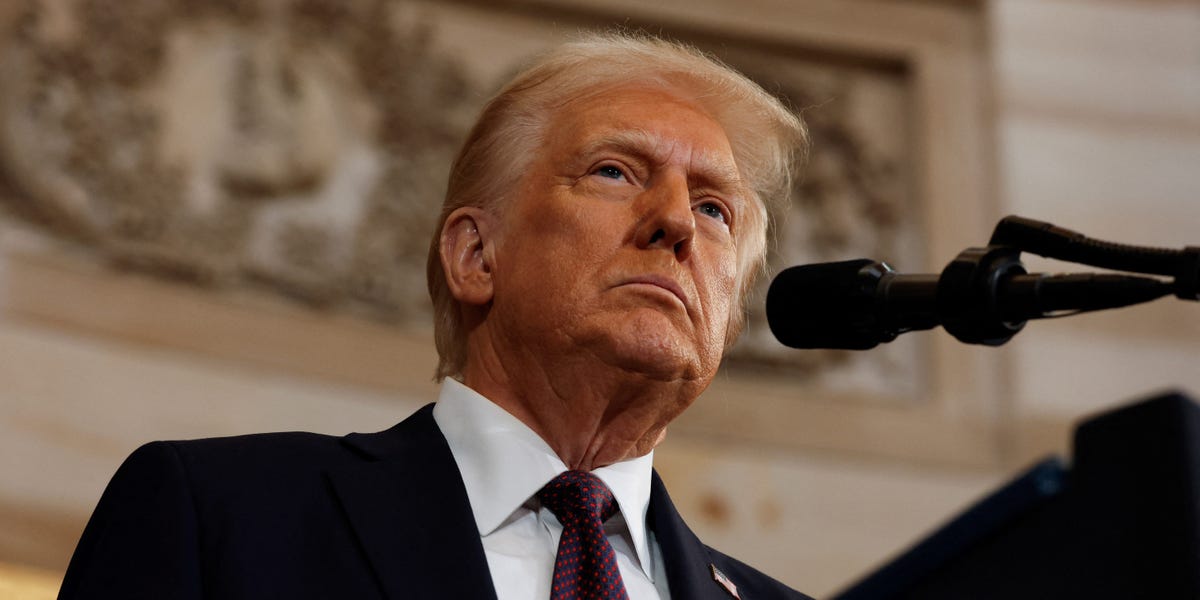
In this week's Sunday edition of BI Today, we dive into the complex landscape of American manufacturing, exploring President Trump's ambitious revival efforts and the surprising lukewarm response from the American workforce. Trump's vision of reinvigorating the manufacturing sector has been a cornerstone of his economic strategy, promising to bring jobs back to American workers and revitalize industrial communities. However, a growing disconnect emerges as many Americans seem hesitant to embrace these manufacturing opportunities. Despite passionate rhetoric about restoring industrial might, the reality on the ground tells a different story. Young professionals and emerging workforce generations appear increasingly disinterested in traditional manufacturing roles, preferring technology-driven and service-oriented careers. This disconnect raises critical questions about the future of American manufacturing: Can traditional industrial jobs compete with the allure of digital economy opportunities? And what innovative approaches might bridge the gap between political promises and workforce preferences? Stay tuned as we unpack this nuanced economic narrative, exploring the tensions between political ambition and workforce evolution. MORE...
- 1
- 2
- 3
- 4
- 5
- 6
- 7
- 8
- 9
- 10
- 11
- 12
- 13
- 14
- 15
- 16
- 17
- 18
- 19
- 20
- 21
- 22
- 23
- 24
- 25
- 26
- 27
- 28
- 29
- 30
- 31
- 32
- 33
- 34
- 35
- 36
- 37
- 38
- 39
- 40
- 41
- 42
- 43
- 44
- 45
- 46
- 47
- 48
- 49
- 50
- 51
- 52
- 53
- 54
- 55
- 56
- 57
- 58
- 59
- 60
- 61
- 62
- 63
- 64
- 65
- 66
- 67
- 68
- 69
- 70
- 71
- 72
- 73
- 74
- 75
- 76
- 77
- 78
- 79
- 80
- 81
- 82
- 83
- 84
- 85
- 86
- 87
- 88
- 89
- 90
- 91
- 92
- 93
- 94
- 95
- 96
- 97
- 98
- 99
- 100
- 101
- 102
- 103
- 104
- 105
- 106
- 107
- 108
- 109
- 110
- 111
- 112
- 113
- 114
- 115
- 116
- 117
- 118
- 119
- 120
- 121
- 122
- 123
- 124
- 125
- 126
- 127
- 128
- 129
- 130
- 131
- 132
- 133
- 134
- 135
- 136
- 137
- 138
- 139
- 140
- 141
- 142
- 143
- 144
- 145
- 146
- 147
- 148
- 149
- 150
- 151
- 152
- 153
- 154
- 155
- 156
- 157
- 158
- 159
- 160
- 161
- 162
- 163
- 164
- 165
- 166
- 167
- 168
- 169
- 170
- 171
- 172
- 173
- 174
- 175
- 176
- 177
- 178
- 179
- 180
- 181
- 182
- 183
- 184
- 185
- 186
- 187
- 188
- 189
- 190
- 191
- 192
- 193
- 194
- 195
- 196
- 197
- 198
- 199
- 200
- 201
- 202
- 203
- 204
- 205
- 206
- 207
- 208
- 209
- 210
- 211
- 212
- 213
- 214
- 215
- 216
- 217
- 218
- 219
- 220
- 221
- 222
- 223
- 224
- 225
- 226
- 227
- 228
- 229
- 230
- 231
- 232
- 233
- 234
- 235
- 236
- 237
- 238











